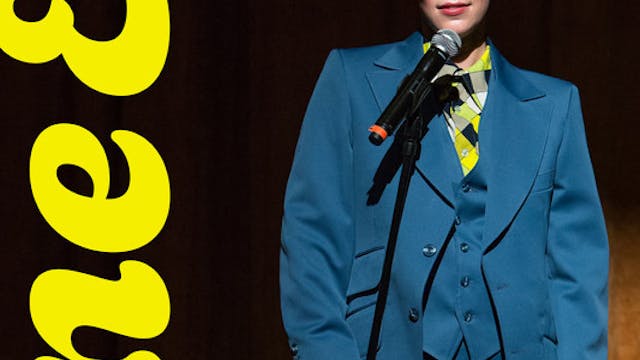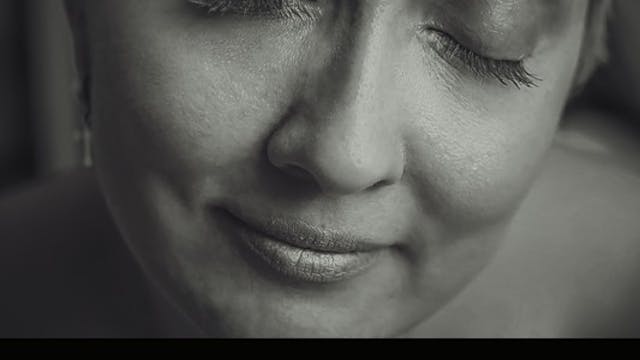A BETTER PLACE short film, audience reactions (with producer interview)
FESTIVAL AUDIENCE FEEDBACK VIDEOS
•
Documentary, Short Films, Special Interest
A Better Place is an in depth look at the toxic legacy of British colonial-era laws, which criminalise consensual same-sex love, while at the same time allowing perpetrators of sexual violence to go unpunished. More than 70 countries still criminalise gay sex. In over 30, rape within marriage is still legal. Behind these statistics are the people whose lives are paralysed by these archaic laws.
Meet the LGBTQ+ people whose love is criminalised; who face the daily struggle of state-sanctioned hatred. Meet the women who endure sexual violence in their homes, with no recourse to justice. And meet the global network of activists, lawyers and legislators striving for equality and justice for everyone.
Together, these courageous survivors and reformers are working to eradicate these laws, which blight the lives of millions. By unshackling our societies from the devastating relics of colonialism, this inspiring network of changemakers is forging a path to an equal, just and happier world.
Producer - James Lewis - Statement
Through human stories of hope, we reveal what we have in common, beyond our obvious and perceived differences. We are both unique and the same, connected through shared values and our humanity.
When making A Better Place, we focused squarely on humanising the colonial laws that make justice evasive, while also cementing hatred towards LGBTQ+ people. The law can seem distant, dry and abstract. But for many, particularly those who are unrecognised in law and are marginalised in society, the law is very real. We live in a world where some people can be criminalised in the bedroom for consensual acts of love, while others can be legally beaten and sexually abused in the bedroom. From this harsh reality, ripples a myriad of individual trauma, cultural and attitudinal harm, and societal ills.
As a gay man, I grew up in a society that no longer criminalised homosexuality, but I still felt the effects of endemic homophobia. In my lifetime I have seen attitudes in the UK go from hatred to begrudging tolerance, to growing acceptance and even celebration. There is still much to be done for our community, and hate crimes are on the rise, but the LGBTQ+ lived experience has dramatically changed over the last few decades. It is our responsibility as queer people, to tell stories that push for further change, particularly in countries where the first important step is decriminalisation. As a British gay man, I feel that responsibility keenly. My ancestors are the people who created these laws, contributing enormously to the hatred they permission. Criminalisation is just one part of the colonial criminal code that creates unsafe, unjust societies, with women and girls dealing with rampant misogyny and violence. At the apex of this hate, are queer women and girls who must deal with multiple legal and experiential risks.
A filmmaker's role is to allow people to tell their own stories. Here we see beautiful resilience in the face of brutality and discrimination. We also, importantly, recognise the brave efforts of a network of activists and lawyers, who are forging paths to a fairer future.
I was not ready for the emotional impact of producing this film. Meeting people from around the world whose own experiences of fear and shame echoed my own as a young man, was deep and powerful. Through making this film I became more connected with the LGBTQ+ global community, in a way that cemented my sense of responsibility and our shared experiences.
The people featured in our film opened their hearts to us, courageously telling their stories about the repercussions of legal inequality and discrimination. It is our hope that through telling the stories of the survivors of hate crimes and sexual violence, that we can increase awareness and push to reform the archaic laws that blight the lives of millions globally.
There is beauty in resilience and survival, but there is nothing more beautiful than justice, fairness and equality.
Get to know the filmmaker:
1. What motivated you to make this film?
It is our responsibility as queer people, to tell stories that push for further change, particularly in countries where the first important step is decriminalisation. I feel that responsibility keenly. My ancestors are the people who created these laws, contributing enormously to the hatred they permission. Criminalisation is just one part of the colonial criminal code that creates unsafe, unjust societies, with women and girls dealing with rampant misogyny and violence. At the apex of this hate, are queer women and girls who must deal with multiple legal and experiential risks. As a gay man, I grew up in a society that no longer criminalised homosexuality, but I still felt the effects of endemic homophobia. In my lifetime I have seen attitudes in the UK go from hatred to begrudging tolerance, to growing acceptance and even celebration. There is still much to be done for our community, and hate crimes are on the rise, but the LGBTQ+ lived experience has dramatically changed over the last few decades.
2. From the idea to the finished product, how long did it take for you to make this film?
3 years! We createsd two short films on separate elements of the film - hate crime and sexual offences. We later decided to shoot more and cut the film into a longer extended piece that pulled together all of the elements of colonial law and law reform that affect the full LGBTQ+ spectrum of people. It was a long and emotional journey, globe trotting and forging long and permanent friendships.
3. How would you describe your film in two words!?
Queer Resilience
4. What was the biggest obstacle you faced in completing this film?
The greatest challenge was deciding what to keep and which stories to tell. This is a complex issue, with legal jargon and multiple lived experiences that are hard to summarise. The situation, legally, is complex across the world and choosing which countries reflect that diversity was a challenge in itself.
5. What were your initial reactions when watching the audience talking about your film in the feedback video?
I cried, which is quite typical but no less meaningful in its frequency! I was so touched that people took the time to really reflect on the film content, messaging and mission. When we make "small" films , I think filmmakers can be unsure of what people honestly think, as feedback is often requested or given face-to-face. For total strangers to completely understand and appreciate the messaging and the effort, it was totally heart-burstingly wonderful.
6. When did you realize that you wanted to make films?
When I was 14 I decided I wasn't just interested in films as a hobby, I wanted to tell stories. It took a while to convince my traditional parents, but in the end I forged my own path - and a little pushback proved motivating. If I am honest, I think it was Jurassic Park that lit the fire under me, I was obsessed and spoke of nothing else for weeks after watching it at the cinema.
7. What film have you seen the most in your life?
The documentary I have watched the most is Cameraperson, which I consider a perfect piece of art. Most watched fiction is Aliens. Ellen Ripley is my hero.
8. What other elements of the festival experience can we and other festivals implement to satisfy you and help you further your filmmaking career?
An enormous budget to transport people to your festival from abroad! ;-)
9. You submitted to the festival via FilmFreeway. How has your experiences been working on the festival platform site?
Really positive. It is so much easier to navigate this world now, compared to a few years ago. There do seem to be a few smaller festivals that exist to just make money, which is a shame, but just another symptom of late stage capitalism.
10. What is your favorite meal?
Traditional British roast dinner, the best part of British culture!
11. What is next for you? A new film?
More short films - from documentaries to media campaigns - that push for positive change across a myriad of social issues.
Up Next in FESTIVAL AUDIENCE FEEDBACK VIDEOS
-
One & Only short film, audience react...
A young comedian misses performing, but faces a world in which she can no longer tell if she’s funny, so she decides to reconnect with her audience members – one at a time.
ONE & ONLY is an experimental comedy special written and performed by Sophia Cleary for an audience of one person. Using th...
-
EXIST short film, audience reactions
EXIST, 4min., USA, Experimental
Directed by Niaz Parvaresh
Power of sorrow that guide you to exist .https://www.facebook.com/Exist-113831020920824/?ref=pages_you_manage
https://www.instagram.com/niaz.parvaresh/ -
Puzzle in the palm short film, audien...
PUZZLE IN THE PALM, 26min., Japan, Drama
Directed by Ayumi Kurokawa
Risa and Takumi were born and raised in Kanazawa at Japan. They've been dating for a year and a half, and they turned thirty years old. Parents and relatives half-heartedly encouraged them to live together. So they decided to liv...


